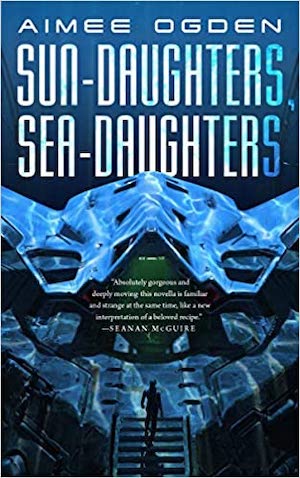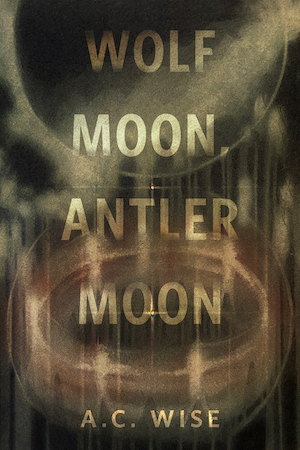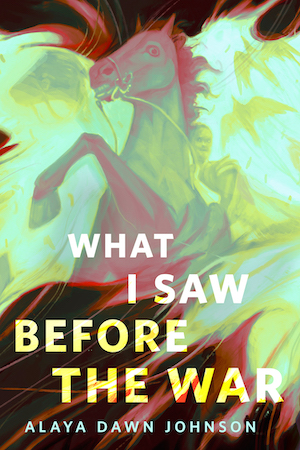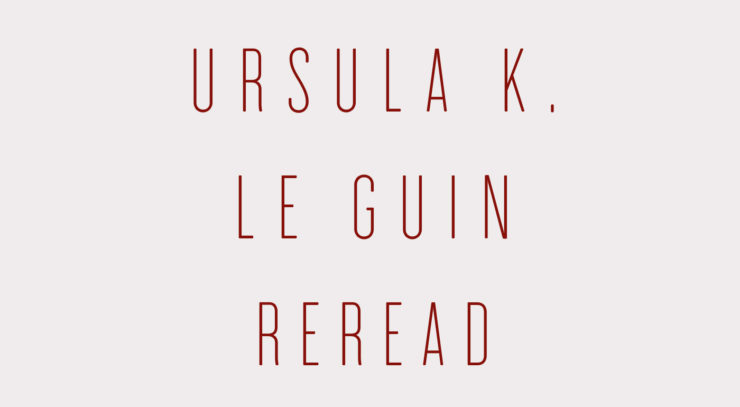A biweekly series, The Ursula K. Le Guin Reread explores anew the transformative writing, exciting worlds, and radical stories that changed countless lives. This week we’ll be covering Le Guin’s nonfiction collection The Language of the Night: Essays on Fantasy and Science Fiction (1979). My edition is the original 1979 edition published by Putnam under the Perigee Books imprint.
And so we come to the end of the Le Guin Reread’s first year, a tumultuous one for our small, pale blue dot of a planet, but one in which I somehow managed to write 20 reread essays covering Le Guin’s career from her beginnings as a professional SFF writer to today’s book, The Language of the Night, a collection of essays and shorter nonfiction published in 1979. We have sailed Earthsea, died and come back, and traversed the vast reaches in time and space of the Ekumen, as well as been to more mundane lands, such as Malafrena, and visited worlds too like our own, but in which a man has learned to dream new realities into existence.
It seems fitting, then, to end this first year of contemplative romps through Le Guin’s “classics” with a work of nonfiction, a collection of essays, ideas, musings, speeches, and introductions that express what Le Guin imagined she was up to in the works we’ve had the pleasure (or, occasionally, the dispassionate duty) to read thus far. As I’ve tried to make clear throughout this year of reading, Le Guin is more than a talented SFF writer, skilled at both science fiction and fantasy; she almost always rises to the level of a true master wordsmith, an artisan of the imagined, an accomplished literary artist. She is also, as nearly every essay I’ve written thus far suggests, a wise critic of not only the world in which she lived—this is the bare minimum prerequisite for being, after all, an anarchist—but of the thing she was doing: art, creation, writing, making. It comes as no surprise, then, that Le Guin’s essays on genre are astute and informative. And not just about SFF, but about Le Guin herself as writer and thinker.
This is a known genre: The Well-Known Writer’s Take on SFF. Name any major writer of SFF this past century, and they almost certainly wrote some essays, if not a small collection of essays (published semi-willingly by their fiction publisher), on science fiction and fantasy. From the 1970s onward, a good many of them have even interacted with academics who study SFF, either at the International Conference on the Fantastic in the Arts—attended with equal pleasure by writers and academics alike, and with the most annoyingly wordy name of any con (seriously, folks, you’ve had 4 decades to fix that mess…)—or in one of several pseudo-academic or fully-academic journals devoted to SFF. Le Guin herself contributed regularly to the early journal Science Fiction Studies and helped fund in part the organization that still publishes Foundation: The International Review of Science Fiction (where I was formerly book reviews editor).
I don’t like this genre. More often than not, as someone who has spent nearly a decade reading on the topic of science fiction and fantasy (history, theory, criticism, meaning), I find the self-assured comments of authors on the genre, which inevitably conclude what the differences between the two are, to be about as useful as I’m sure they’d find my attempts to help them workshop a story. And yet, authors have strong opinions and ideas about the genres to which their fictions belong. (Duh, Sean.) And so, though such writing often falls flat and ignores the decades of work others have put into thinking about SFF, the things authors have to say about genres (how they work, why they work, etc.) are meaningful and have the capacity to influence genre just as much as a publisher’s decision to market X book with Y cover under Z subcategory does. What’s more, there are plenty of authors who are also excellent, even foundational, critics: Damon Knight, Donald Wollheim, Judith Merril, Stanisław Lem, Nisi Shawl, Kim Stanley Robinson, Gwyneth Jones, China Miéville, and Samuel R. Delany—to name a few!
Buy the Book


Sun-Daughters, Sea-Daughters
Le Guin rates here, and though I find her mode of talking about SFF occasionally outdated (my gods, with the Jung!), her insights are personal, intriguing, and worth paying attention to, since criticism and thinking about SFF need not be the realm of the Ivory Towered academic, but should belong to us all, even as we carve out our own language to speak about the genre(s) and even if we annoy the curmudgeonly academic, like me, who sometimes needs to shut it and listen to what is being said, not how. Moreover, reading Le Guin on science fiction and fantasy helps us better understand what she is trying to do when she does SFF.
The Language of the Night collects 24 pieces of nonfiction in 5 sections. The majority of the pieces are concerned with what science fiction and fantasy mean, how they are written (by others and by Le Guin), and how one goes (or should go) about writing generally. The book and each section are introduced by Susan Wood, on whom more below. Wood organizes the essays around thematic-ish ideas, e.g. an “introduction” to Le Guin, a collection of essays “On Fantasy and Science Fiction,” Le Guin writing about her own work (mostly introductions to her books), Le Guin on writing generally, and Le Guin on artistic responsibility. Of course, there’s tons of overlap across these sections, since Le Guin is annoyingly good at writing about all her loves regardless if she’s got 500 words or 10,000.
Half of the pieces are longer essays written for various fanzines, magazines, and journals, while the other half are shorter affairs: either a speech for a con or awards ceremony, or otherwise the introduction to a book (7 in total—2 from others’ books, 5 from her own). This mix of sources for Le Guin’s nonfiction provides a comforting range, but what’s surprising seeing them all together, is just how seamlessly Le Guin’s critical voice unites them all, moving from her longer diatribes on the importance of Carl Jung’s pseudo-scientific psychoanalytic framework to understanding the important of the imagination to an impassioned call to slap down our own internal censors.
With an essay collection, I don’t find it incredibly productive to read and critique end-to-end, largely because unless organized chronologically, essay collections tend to take an assortment of the author’s better essays and group them as best as possible around a theme. So the organization of the book ultimately matters very little. However, one section of this book clearly stands out, section two on “On Fantasy and Science Fiction,” since it is here that some of Le Guin’s most famous essays on genre (excepting, perhaps, her “carrier-bag theory of fiction” essay, written in 1986 but not published until 1988) find a new home. Most, like “American SF and the Other,” were originally published in academic(y) venues like Science Fiction Studies, PNLA Quarterly, and Parabola. Refreshingly, they are not overly academic, though occasionally they have footnotes, mostly to let you know where exactly you should read Carl Jung to agree with her.
For me, the standout essays are those about fantasy, specifically about why fantasy matters and how to do it well (or badly). “Why Are Americans Afraid of Dragons?” opens the section and quickly establishes itself as akin to Tolkien’s “On Fairy-Stories” (1947) as a classic of fantasy criticism. It is witty, funny, and insightful, discussing in broad terms the capitalist and gendered dynamics of genre consumption, emphasizing that while fantasy is rejected by money-making white men who would rather read something less childish, it is precisely the childishness of fantasy—that it embraces imagination and possibility without fear—that makes fantasy an important, liberating, and worthwhile genre. Americans are afraid of dragons, of fantasy fiction, for a number of historical reasons, including a Puritan addiction to black and white binaries, an obsession with pursuits that make money, and a belief that pleasure is weak, feminine, undignified.
Here, and elsewhere, Le Guin paints in broad strokes, not in minutiae that intend to prove her point beyond reasonable doubt (compare, for example, to Michael Denning’s Mechanic Accents [1987], which is exhaustive to the point of utter boredom, but leaves little room for doubting its argument). But Le Guin is compelling nonetheless, precisely because she speaks in general archetypes that we can hardly disagree on, but without feeling thin or shallow. Le Guin offers much to think about while also complexifying how many of us—even those who love fantasy—think about the genre. It is, for example, refreshing to read several essays that opine on the complexity of Tolkien’s The Lord of the Rings at a time when he is increasingly dismissed as simplistic, an issue Le Guin tackles in “The Shadow and the Child” and “From Elfland to Poughkeepsie.”
In fact, “From Elfland to Poughkeepsie” might very well be one of the best pieces of fantasy criticism to date (and, sadly, there’s little good academic fantasy criticism 40 years later that has moved beyond mythological criticism and psychoanalysis): it pinpoints how fantasy is written at a particular and important juncture in the genre’s development. The 1970s were a turning point for defining “fantasy” as a genre that publishers recognized. Yes, fantasy or the fantastic existed well before Tolkien, and Le Guin provides numerous examples from E.R. Eddison to sword-and-sorcery pulp to Lord Dunsany. But, thanks in large part to Ballantine’s publication of The Lord of the Rings in mass-market paperback in the 1960s, followed quickly by Lin Carter’s Ballantine Adult Fantasy series, which brought together a “canon” of pre-1960s fantasy fiction, the modern fantasy genre that we recognize and expect today in every bookstore was in the process of forming.
“From Elfland to Poughkeepsie” is something of a lament about this very process, without Le Guin having yet the benefit of hindsight to see what, exactly, was happening in the 1970s: fantasy was becoming a market genre, i.e. a genre revolving increasingly around a set collection of ideas, themes, tropes, images, concepts, and so on, that could be churned out by any interested publisher, imitated by new authors, formulaized, and slapped with a painted cover featuring elves, magic, and dragons. In short, fantasy industrialized and became a mass-market phenomenon, for better and worse. Through a careful reading of the prose, style, and word-choice of several authors, Le Guin shows us how the differences manifest, how art separates itself from the chaff, but how the chaff sells and reproduces nonetheless.
Le Guin is equally sharp re: science fiction in essays like “Science Fiction and Mrs. Brown,” in which Le Guin considers whether the SF Novel (in the proper, inherited-from-the-nineteenth-century literary sense) is possible, and concludes that it is (“Have you ever read Lem, you noobs?” she seems to say), and in “American SF and the Other,” an essay I touched on in my reread of The Lathe of Heaven, which discusses the hero-focus of so much SFF and the ways in which galactic wars and epic fantasy battles give no shits about the 99% of us who would, no doubt, be crushed underfoot as heroes and emperors and wizards followed their destinies. My own qualms with essays in this section arise mostly from her over-attentiveness to the writing of Carl Jung, AKA the guy from whom Joseph Campbell got his only good ideas, but whose ideas were, well, just kinda OK to begin with. Still, Le Guin is such a convincing writer, especially in her analytical use of Jung in “The Child and the Shadow” and “Myth and Archetype in Science Fiction” that I was almost swayed by the dead Swiss guy’s way of thinking—almost.
Outside of the brilliant essays in “On Fantasy and Science Fiction,” the pieces in The Language of the Night are give or take for me. The introductions to Le Guin’s novels are available in most republications of her novels and are must-reads to contextualize her thinking about each book, and it is a rare glimpse into her interaction with other SFF writers to see her introduction to, for example, a story collection by James Tiptree, Jr. The most well-known essay in the second half of the collection is probably “Is Gender Necessary?” or Le Guin’s musings on why she did what she did in The Left Hand of Darkness. It’s a self-reflexive essay often republished with the novel that helps readers understand her ethnographic process in bringing Gethen to life; it’s also a place where you see her early defensiveness about the novel’s failings (I used “he” because it’s gender neutral, dammit!). “The Stalin in the Soul” is one of the writer-process essays in which she discusses the artist’s responsibility to art and argues that artists tend to censor themselves, which sounds like a poor analogy to “you’re your own worst critic” but really means “ideology reproduces its own limits in the creation of art, making it difficult to challenge ideologies.” And among these grander essays are quieter pieces, like “The Staring Eye,” a brilliant short piece about the memory of Le Guin discovering Tolkien and wondering whether, had she been younger, she would have been so taken by Tolkien that she might not have had the will to produce anything but Tolkien fanfic.
***
The Language of the Night is an apt end to a year rereading Le Guin. Here, Le Guin offers insight into nearly two decades of being a professional SFF writer (she notes that, for her kids, it’s just as “square” a job as having a lawyer mom or businessman dad). She tells us why she writes, how she writes (a process of discovery, irking all those who want practical advice), and the purpose behind writing: to make art, to express what the world needs to hear, to find pleasure in the imagination, to grow and be responsible in and to the world. But Le Guin is not just a great, reflexive practitioner of art as exemplified by the more personal essays, she is also a damn fine critic of SFF whose words still ring powerfully four decades later—no easy feat in the world of criticism, where critical fads fade by the fortnight. The Language of the Night is, unlike some things we’ve read this year, a must-read for anyone who cares deeply about SFF. I recommend it especially for those who care about Le Guin and more so for those who are more deeply invested in fantasy than science fiction.
Finally, before parting ways, I want to acknowledge the book’s editor, Susan Wood, someone wholly unknown to me before reading The Language of the Night, and probably unfamiliar to many readers today. One of the great things about SFF is how many people play crucial roles behind the scenes, whether as instructors for a great many writers, as influential “fan writers,” and as the editors and agents of many well-known names (Virginia Kidd is a key example). These folks are rarely written about by the historians of SFF, in large part because their influence was largely personal, anecdotal, and buried in archival materials—personal correspondence, back-of-the-magazine columns, fanzines—or otherwise intangible, i.e. you’d only know about them if you attended the right things 30 to 50 years ago, or if you heard someone reminisce about them before they themselves departed the Grey Havens. Susan Wood is just such a person: a professor at the University of British Columbia, she no doubt influence hundreds of lives as an instructor, but she was also a major, active fan in SFF in the 1960s and 1970s, and her last great “hurrah” was as editor of this very volume (she died in 1980). Wood organized numerous feminist panels at SFF conventions during the last twenty years of her life, won three Hugo awards for Best Fan Writer, co-edited an award-winning fanzine, amassed a large archival collection of SFF art, and taught William Gibson (whose first published story was drafted for her course). Wood is an astute contextualizer of Le Guin’s pieces in The Language of the Night and I dearly wish we knew more about her.
I want to thank you all for the opportunity this year to come into your lives and share my experiences and critical insights rereading Le Guin with you. I hope we’ll have another year together and that you’ll join me in celebrating the life and art of Le Guin. Join me in the new year on Wednesday, January 6 as we read the novel The Beginning Place (1980) and enter a new decade in Le Guin’s career. Be seeing you!
Sean Guynes is an SFF critic and professional editor. For politics, publishing, and SFF content, follow him on Twitter @saguynes.










